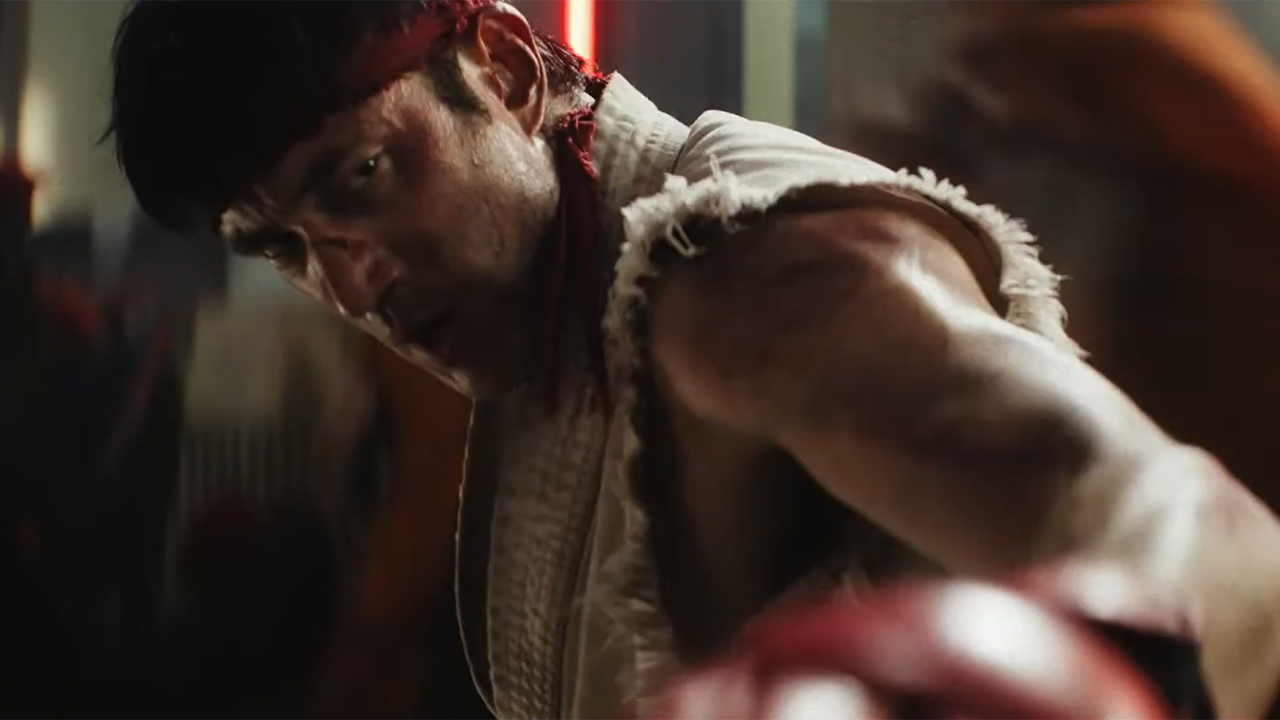While "Lost" was setting everyone's jaws a' flapping, J.J. Abrams' other show fought through a difficult and uneven fourth year. While this set offers more than its share of low points (don't mention the assassin-helicopter episode), the fourth season of "Alias" intrigues as a snapshot of a show attempting to recapture its old magic, and its missing viewers, in the wake of an already disappointing third year. We as viewers loves us some female ass-kickers. In the 90s this phenomenon found new life in such talented dishers-out of petite violence as Buffy (of vampire-slaying fame) and The Matrix's Trinity. But perhaps no latter-day, double-X-chromosome action hero embodies the trend as well as Sydney Bristow, the super-spy extraordinaire of ABC's "Alias." Which isn't to say she can necessarily kick ass with more efficacy than the previous examples, but one must consider that a) she doesn't have the supernatural powers of the Slayer, b) she can't move in bullet time, and c) in any given episode there's a significant chance she'll dress up like a naughty schoolgirl. Advantage: Bristow.
But alas, plaid skirts can only carry you so far. Though it quickly became a cult hit after its 2001 premiere, the series has never managed to match that fan devotion with ratings success. It had the good fortune to premiere on ABC during a time after the Madness That Must Not Be Named (But Which Involved Regis Philbin) but before ABC become a dramatic powerhouse with the one-two punch of "Desperate Housewives" and "Lost." The show wasn't exactly knee-deep in hits, so "Alias" was perhaps afforded a better chance at survival than it might otherwise have. Obviously the show has some fans at the network, since the series is currently trundling through its fifth season, but nearly every season has seen the show undergoing dramatic changes in an attempt to make the show more hospitable to new viewers. The most successful of these was the infamous post-Superbowl episode "Phase One," which bulldozed the show's double-agent format and streamlined the complicated mythology. The writers tried again with the third season premiere, which jumped the timeline ahead two years and left poor Syd with no memory of the intervening period. "Alias" has effectively had more series premieres than some network line-ups.
With season four, J.J. Abrams, et. al., try once more to clean house and roll out the welcome mat for that ever-elusive, hit-making throng of viewers. As we rejoin our hero, a SNAFU'd field mission calls down heat from Syd's less-than-understanding superiors, leading her to resign from the C.I.A. in disgust… at least on paper. In fact, she is simply transferring to an elite new covert ops division (dubbed "Authorized Personnel Only", or "APO", for the sign on the door of their secret compound) manned by several familiar faces: on-again, off-again lover Vaughn (Michael Vartan); ex-boss Dixon (Carl Lumbly); spy daddy Jack Bristow (Victor Garber); twitchy Q substitute Marshall J. Flinkman (Kevin Weisman); and, most importantly, Syd's nemesis Arvin Sloane. Sloane seems for the time being to have abandoned his inner Pinky and the Brain, following the better angels of his nature, but nobody on the team trusts him. With good reason, since he is directly responsible for murdering the loved ones of at least two of them.
And herein lies one of the biggest problems of the fourth season. By reassembling the cast in roughly the same configuration as the first season, sans the double-agent shenanigans, Abrams and crew seem to be trying to recapture the magic that made those first two seasons so addictive. But, as the saying goes, you can't go home again. Accepting that Sydney, Dixon, and the others would now voluntarily follow the leadership of Sloane, a man for whom their kindest emotion is murderous hatred, requires more suspension of disbelief than any thinking viewer should reasonably be expected to muster. The writers even acknowledge the characterization discrepancies this arrangement presents, and I frankly don't buy the explanation the show offers – that Syd and the rest agree to take the job so they can "keep an eye on Sloane." Sure, Sydney scowls and glowers and pouts every time Sloane enters the room, but after all he has done to her, her friends, and her family over the preceding three years, it smacks of dishonest storytelling.
Several times, in both the commentaries and making-of featurettes, the writers mention the network edict for the fourth season: 1) to focus more on self-contained episodes and 2) to limit references to anachronistic genius Rambaldi, whose prophecies and creations form the spine of the show's mythology, during the first half of the season. Unfortunately, those constraints leave us with an utterly mediocre spy show. A big part of what made "Alias" so addictive in the first place was the serialized storytelling, the adrenaline-charged cliffhangers that capped nearly every episode. The argument seems to be that it's too hard for audiences to catch up with a complicated mythology and heavy serialization, to which I offer Exhibit A ("Lost") and Exhibit B ("24") or damn near any new network drama this year. Serialization is the flavor of the moment, and by abandoning what worked before, "Alias" runs the risk of alienating long-time fans (as they did with this one). In turn, those initial "self-contained" shows of the season needed to be at the top of their game if they were to lure in new viewers and court the forgiveness of the old ones. Sadly, this ain't the case.
At this point there's a good chance that 90% of the people who have any interest in watching "Alias", already are. Those who are interested but have missed the preceding three seasons, allow me to introduce you to the magic of DVD. Catching up is as easy as a trip to Blockbuster or a few clicks on Netflix.com. By focusing so intently on courting a semi-mythological "mass audience", "Alias"' fourth year falls victim to the same miscalculation as "Farscape"'s. The result: a woefully uneven season that only regains its steam once the halfway point is passed and the writers gets back to doing what they had previously done so well.
Just as disappointing as a half season of mediocrity is the fact that the show crafts one of the most interesting plot twists in ages, then proceeds to waste it. The episodes leading up to "Another Mr. Sloane" introduce a fascinating new antagonist in the form of guest star Joel Grey. The mystery surrounding his character could have (and should have) easily sustained a season's worth of stories. Instead, they are introduced and resolved in a handful of episodes -- a spectacular exercise in anticlimax. It's bad enough that this character's introduction is the only real high point in a humdrum season; but it's downright infuriating when such a wealth of narrative potential is resolved almost off-handedly. Moreover, these episodes also give us a truly great moment where it seems as if Sloane, who's been playing nice all season long, is about to go full-tilt-bonkers Evil-with-a-capital-E. And then? He's feeling much better by the next episode. Coupled with a revelation of Rambaldi's long-hinted-at endgame that plays like a half-baked bastard child of James Bond and 28 Days Later, and one leaves the season with a lingering aftertaste of "eh."
Your Daily Blend of Entertainment News
Which isn't to say there are no bright spots at all. The considerable talents of the supporting cast buoy even moderately successful episodes such as "Nocturne". It's great to see baddies from previous seasons, such as Sark and Anna Espinoza (played by Gina Torres of "Firefly" fame), getting more time in the spotlight, even though the season would have benefited if they'd been given more to do. The episode "Ice" boasts possibly the best pre-commercial shock gag of the show's run, and will bring a smile to the lips of anyone familiar with the works of Kurt Vonnegut. "Tuesday" sees gadget guru Marshall proving to be the most accidentally effective field agent ever, and adds one more item to the list of Things One Can Do With a Spork (a gag which was hysterically referenced again in the fifth season).
And, of course, Sydney and sister Nadia do look awfully nice in those outfits… Though season four is far from being the show's finest hour, this set does follow in the footsteps of the previous releases by providing a solid collection of special features.
Disk one contains three, count 'em, three of the set's four audio commentaries. Show runner J.J. Abrams, Jennifer Garner, executive producer Ken Olin, and producer Sarah Caplan swap amusing stories, laugh at their own jokes, and seem far too taken with the season's two-part premiere, which is arguably the worst two hours of the show's run. Abrams explains several times that he rewrote the premiere at the last minute when he decided it didn't contain enough action. This is disappointing to hear, since the episodes' mangled characterization and exposition-heavy dialogue might almost be forgivable if it were a first draft.
Much more worth your while is the commentary on "Ice", featuring writers Jeff Pinkner, Drew Goddard, and Jeffrey Bell (who both wrote and directed the episode in question). The three speak candidly about what it's like writing for the show, especially the challenges imposed by the network mandates to make the show more self-contained. The three are honest, funny, and at times self-defacing enough that the whole enterprise feels like a lost episode of "Mystery Science Theater 3000." Pinkner also returns for the "Nocturne" commentary on disk two, this time joined by director Lawrence Trilling and co-executive producer Jesse Alexander. This one isn't quite as much fun as the "Ice" commentary, but the participants offer some interesting insights into what goes into transforming words on a page into 44-minutes of espionage action and gratuitous T and A.
The sixth disk holds the bulk of the extras, as usual. The "Chat With Jennifer Garner", "Meet Mia: Syd's Little Sister", and "Guest Stars" segments are basically just excuses for the actors and actresses to gush about how great everyone on the show is, how much fun their jobs are, and how much we should all wish we worked on "Alias", seeing as how it's the greatest work of modern fiction ever crafted, dammit. Slightly more worthwhile are the array of deleted scenes, of varying importance and entertainment value. 99% of deleted scenes were wisely deleted, but it's still interesting to see these random story moments that died on the vine for whatever reason.
The pinnacle of the set's extras are the two "Anatomy of a Scene" segments and the "Director's Diary". The former two dissect a pair of scenes (a fight aboard a moving train and a stunt where Sydney leaps from a Paris rooftop onto the skid of a hovering helicopter) from every angle of production, from visual effects to fight choreography. The latter follows Jeffrey Bell as he oversees the preparation, shooting, and editing of episode 20, "The Descent."
The show's blooper reel is little more than several minutes of actors flubbing their lines or swearing, which gets old fast. For sheer entertainment value, skip the bloopers and head straight to "Marshall's World", wherein Kevin Weisman drags a cameraman around the set and amuses us with his silliness.
While the fourth season is overall disappointing, fans can take comfort in the fact that this year's fifth season has been a head-and-shoulders improvement. In the meantime, die-hards and completists will still find enough in this set to merit a purchase, whereas casual viewers may want to make this one a rental.

